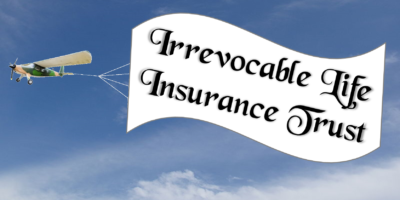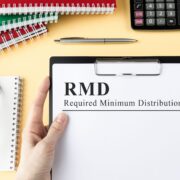KEY POINTS
- Assets typically pass to recipients without the transfer of ownership becoming a taxable occasion.
- Options for dealing with an inherited pension generally depend on your relationship to the decedent.
- While you might not owe any taxes on the inheritance itself, any gratitude on possessions that are offered– such as stocks or genuine estate– would potentially come with tax.
Often, an inheritance lands in your lap when you aren’t anticipating it.
Whether due to the untimely death of an enjoyed one, or because you were a named heir and didn’t know it, the unplanned event might prompt unpredictability about how to manage the possessions.
Depending on what you’re inheriting and its worth, you may require to take steps to avoid slipping up that might result in unexpected taxes or expenditures.
VIEW NOW VIDEO02:08 Managing an inheritance
“If this was unplanned and you’re taken by surprise, do not rush to do anything that winds up being irreversible,” stated certified monetary organizer Kashif Ahmed, president of American Private Wealth in Bedford, Massachusetts.
Furthermore, you may not desire to share the info with plenty of individuals, especially if the inheritance is substantial.
“Individuals will start appearing wanting loans or presents,” said Wendy Goffe, a partner with the law practice of Stoel Rives in Seattle who concentrates on estate preparation. “You need to be thoughtful about who you inform.”
The essentials
The bright side is that, in a lot of cases, properties pass to beneficiaries without the transfer of ownership becoming a taxable event.
Legislation passed in 2017 approximately doubled the quantity that an individual can bequeath to heirs without it being subject to the 40% federal estate and present tax.
That lifetime exemption is $11.58 million this year (it changes annual, and after 2025 it is scheduled to revert back to the previous quantity, which had to do with $5.5 million). And, if estate taxes are owed, the recipients are not the ones ponying up– it’s the estate itself.
“There aren’t many people who have over that amount,” stated CFP Melissa Brennan, a financial planner with ARS Private Wealth in Houston. “It’s rare to see an estate tax scenario.”
Nevertheless, when you sell an acquired possession– such as a house or stocks– you might owe taxes on any gratitude between its market price when the individual died (called a “step-up in basis”) and the price you offer it for.
Likewise be aware that states can impose their own estate or inheritance taxes, which suggests it makes good sense to seek advice from a local estate preparation attorney. While estate taxes are paid by the estate of the deceased, the estate tax is remitted by the successor.
In addition, if the inheritance includes a trust, professionals state you need to get the assistance of a lawyer to avoid snags.

Inheriting a house
When a house gets handed down to beneficiaries after the death of moms and dads or other loved ones, there are 3 choices that beneficiaries typically select from: live in it, lease it or offer it.
If there’s a mortgage on the home, that financial obligation also includes the house. This suggests the heir– presuming they weren’t already jointly responsible for the home loan, such as a partner– is accountable for paying that responsibility. For example, they would require to get approved for a loan by themselves, or sell the residential or commercial property and utilize the earnings to pay it off.
Nevertheless, if you inherit a home that’s underwater– the quantity owed on the home loan is greater than the market worth– it’s worthwhile going over a short sale with the loan provider.
Otherwise, when you do offer the inherited house– whether right away or years in the future– any gains that may be taxable are based upon the “stepped-up” cost basis pointed out above– i.e., the fair-market worth at the time of the owner’s death– not their original purchase rate.
For example, if your mommy paid $100,000 for her house in 1980 and its fair-market worth at her death in 2020 is $350,000, just the distinction in between that updated quantity and the list price would be considered a capital gain, which might be taxable.
Depending upon how you utilize your house and your tax bracket, rates on long-term gains– gratitude from an asset held more than one year– range from 0% for lower-income taxpayers, to 15% or 20% for those with higher earnings.
Nevertheless, if you pick to live in your house for at least two years in a five-year duration, and then offer it, you get to omit a particular amount of appreciation from capital gains taxation because it certifies as a primary house: $250,000 for specific taxpayers and $500,000 for married couples filing jointly.
If you don’t want to offer the house and have no interest in residing in it, leasing it out can be a choice for some sudden house owners.
And of course, there’s always the chance you do not even want to deal with the property at all. If that’s the case, you’ll be happy to know that normally speaking, you do not have to accept it.
“I had customers who inherited a home and they saw it as an albatross around their neck,” said Ahmed of Private Wealth Partners. “They disclaimed it, and it was no longer their problem.”
Disclaiming an acquired asset essentially involves officially informing, in writing, the estate’s executor, trustee, or custodian that you don’t want it. You should do this within nine months of the owner’s death, and it can not be reversed. Speak with a lawyer to learn if there are any local requirements for disclaiming residential or commercial property.
Retirement accounts
If you are not the decedent’s partner and are inheriting retirement possessions– i.e., from an individual retirement account, a 401( k), or comparable workplace strategy– you would establish an inherited IRA and have the cash moved. While you pay no taxes at that time, you may owe a normal earnings tax on circulations.
You also have minimal time to clear the account. Under the Secure Act, which was signed into law last year, retirement properties must be distributed within ten years if an Individual Retirement Account owner passed away after Dec. 31, 2019.
There are exceptions to this, consisting of for spouses, who can “stretch” out the acquired funds based on their life expectancy rather than diminishing the account within a decade. Other exceptions include small kids, handicapped individuals, or those who are less than 10 years younger than the decedent.























Comments